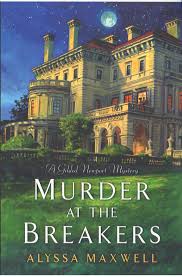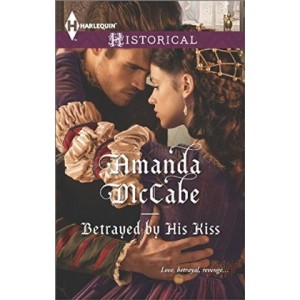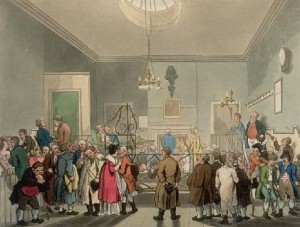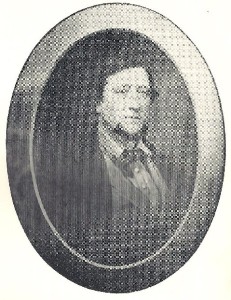First things first–winners!!! The winner of a copy of my book Lady Midnight is…HJ!!!! Email me your info at amccabe7551 AT yahoo and I will get it sent out to you…
 Today I am buried in some revisions, but Alyssa Maxwell, the author of the fabulous new “Gilded Newport” mystery series, has graciously agreed to do a guest blog for us! I read Murder at the Breakers and loved it. Comment for a chance to win a signed copy, or an ARC of the next in the series Murder at Marble House…
Today I am buried in some revisions, but Alyssa Maxwell, the author of the fabulous new “Gilded Newport” mystery series, has graciously agreed to do a guest blog for us! I read Murder at the Breakers and loved it. Comment for a chance to win a signed copy, or an ARC of the next in the series Murder at Marble House…
She Could Not/Would Not Do THAT!
How many times have you heard this in terms of historical heroines? That for a historical heroine to be believable, she must adhere to the social standards of her times and refrain from any activities that were not considered appropriate for a lady of her era.
To that I respectfully say, “Pish!”
The achievements of women throughout history have been pitifully under-reported and, as a result, sadly dismissed, and although we’re becoming more enlightened about the varied roles women actually did play through the centuries, notions of women not coming into their own until the latter half of the 20th century persist.
When I was crafting my sleuth for my Gilded Newport Mysteries, I knew what was considered a “typical Victorian woman” wouldn’t do. To be a strong and compelling enough character to keep readers interested in not one but multiple books, she needed to be smart, resourceful, forward-thinking, and unafraid to step out of the traditional roles of the times.
But would she be an anachronism? A look at the 1890s supported my theory that not all women existed in a gilded cage. The Suffragette Movement was gathering steam, as was the concept of what was being hailed then as the “New Woman.”
According to author Jean Matthews in The Rise of the New Woman: The Women’s Movement in America, 1875-1930,the “new woman” was “young, well educated, probably a college graduate, independent of spirit, highly competent, and physically strong and fearless.” She spanned economic classes, and could be single or married. Often, she took an active interest in political issues.
Another name for the New Woman was The Gibson Girl, coined for artist Charles Dana Gibson, who in his sketches revealed and then actually perpetuated the changing appearance of women in the 1890s. They shed their restraining corsets, petticoats and frills in favor of simple shirtwaist blouses and long skirts that allowed for activities such as tennis and bike riding. Gibson Girls were confident, capable, athletic, and even flirtatious and again, they hailed from all segments of society.
 For the character of Emma Cross, I drew on the real life Gilded Age journalist, Nellie Bly. At a time when most female reporters were relegated to the society columns, Bly stubbornly proved her mettle by seeking out hard news. In 1887 she had herself committed to an insane asylum, an undercover assignment lasting 10 days, in order to investigate and bring attention to the appalling conditions suffered by mental patients. In 1888, Bly traveled alone around the world in under 73 days, beating the fictional record of Jules Verne’s Phileas Fogg in AROUND THE WORLD IN EIGHTY DAYS.
For the character of Emma Cross, I drew on the real life Gilded Age journalist, Nellie Bly. At a time when most female reporters were relegated to the society columns, Bly stubbornly proved her mettle by seeking out hard news. In 1887 she had herself committed to an insane asylum, an undercover assignment lasting 10 days, in order to investigate and bring attention to the appalling conditions suffered by mental patients. In 1888, Bly traveled alone around the world in under 73 days, beating the fictional record of Jules Verne’s Phileas Fogg in AROUND THE WORLD IN EIGHTY DAYS.
I wouldn’t, however, consider Nellie a true feminist—not when one of her lifelong ambitions was to marry a wealthy man, which she managed to do at the age of 31. Her wealthy guy was millionaire manufacturer Robert Seaman, who was 40 years her senior.
Like Nellie, I don’t see Emma Cross in feminist terms, either. She simply isn’t political enough. She doesn’t take up broad causes with activism, because she’s too busy taking care of loved ones and taking in women in need in Newport. Rather than being a feminist, Emma is an individual who recognizes her own potential, appreciates the resources that have given her a good measure of independence, and will not accept a pat on the head in lieu of professional opportunities she has worked hard to earn.
You can “see” Emma in action in Murder at The Breakers (available now), and in Murder at Marble House (releases in September), and judge for yourself—anachronistic, or one of the many women throughout history who stood out because they stood up for what they believed in.
 You can find out more about my Gilded Newport Mysteries at http://alyssamaxwell.com. I love to hear from readers, so while you’re there drop me a line!
You can find out more about my Gilded Newport Mysteries at http://alyssamaxwell.com. I love to hear from readers, so while you’re there drop me a line!
 This week, as I wait for revision on the last WIP I turned in (Murder in the Queen’s Garden, book 3 in my Kate Haywood Elizabethan Mysteries), I am starting on the next. I am very excited about this story! It’s my next romance for Harlequin Historicals, set in the Regency, but with a twist–we are headed to Rio! In 1808, the Portugese royal court fled to their Brazilian colony ahead of Napoleon’s invasion, and my hero (a British officer) and heroine (daughter of a British diplomat), who once had a youthful romance that went wrong, get to go along for the adventure.
This week, as I wait for revision on the last WIP I turned in (Murder in the Queen’s Garden, book 3 in my Kate Haywood Elizabethan Mysteries), I am starting on the next. I am very excited about this story! It’s my next romance for Harlequin Historicals, set in the Regency, but with a twist–we are headed to Rio! In 1808, the Portugese royal court fled to their Brazilian colony ahead of Napoleon’s invasion, and my hero (a British officer) and heroine (daughter of a British diplomat), who once had a youthful romance that went wrong, get to go along for the adventure.







